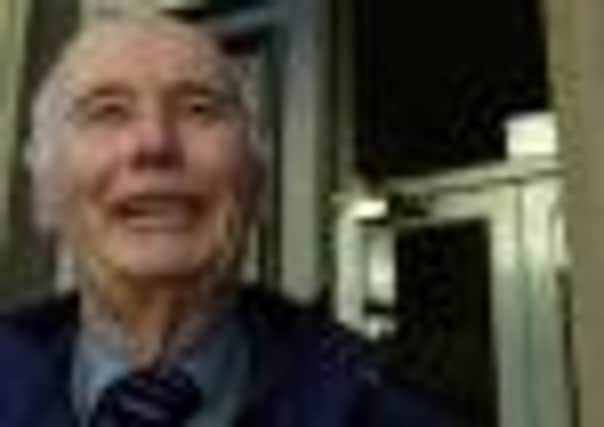Obituary: John Young - Former Conservative MSP and long-serving Glasgow councillor


JOHN Young was a conviction politician: someone who went into public life because of his strongly-held principles, not in the hope of personal advancement.
Indeed, it would have been difficult for him to have been anything else, firstly as a Conservative in the industrial deep red of Labour Glasgow and also as a Home Ruler in the then devolution-sceptical Conservative Party.
Advertisement
Hide AdAdvertisement
Hide AdBut in both these cases – and others – Young was prepared to stand up for what he believed was right, no matter how strong the political currents were against him.
That quality characterised his political career as a councillor and then as an MSP and earned him the respect of political allies and foes alike.
It also helped to ensure him a longevity in public office which other, more malleable politicians, failed to match.
Young was a committed and passionate Glaswegian – in fact the city defined him almost more than his Conservatism. He was born in 1930 into a Glasgow that was still hanging on to its claim to be the second city of the Empire. Educated first at Hillhead High School, Young went on to the Scottish College of Commerce and then on to Glasgow University for a management course.
It was through these early, theoretical lessons in business that Young’s belief in Conservative policies really took hold.
Like most young men of that era, Young served in the forces for two years. For him, it was the Royal Air Force between 1949 and 1951 before getting involved properly in commerce.
Jobs as an export manager, a shipping manager, a contracts manager and even a public relations consultant – a profession in its earliest days then – followed his brief stint in the forces before he found his vocation as a councillor.
Indeed, it is in local government that Young’s achievements are most notable.
Advertisement
Hide AdAdvertisement
Hide AdIn Glasgow terms, he will always remain one of the city’s longest-serving councillors which, for a Conservative, is a considerable achievement and a testament to the devotion he brought to the role.
He represented Newlands on the council for an uninterrupted 35 years, from 1964 to 1999.
The shape of the council changed several times over this period: first there was the Glasgow Corporation, then Glasgow District and finally Glasgow City Council, yet Young was always there, like a pillar of stability, despite the transformations taking place around him.
But it wasn’t just the structure of the council that was changing over this time. Young had to watch as the Conservative Party, which had been a genuine and powerful force in the West of Scotland when he first became a councillor, went into apparently irreversible decline.
For two years, between 1977 and 1979 he was actually council leader, presiding over a minority Conservative administration during the dispute-racked final months of the Callaghan Labour government at Westminster.
The bitter irony for Young – and one which he never forgot – was that he left office as council leader just as Margaret Thatcher was forming a ground-breaking Conservative Government in London.
That period in office in the late 1970s proved to be the high water mark as far as the Conservatives in Glasgow were concerned. Young had three periods leading the opposition in the council but, by the mid-1980s, Labour’s hold on the city had become dominant.
These were also the days when the campaign for a Scottish Parliament started to build strength and Young welcomed the idea of some kind of devolution – unlike most of the rest of his party.
Advertisement
Hide AdAdvertisement
Hide AdHe was propelled to national prominence in 1995 when, with four other former chairmen of the Conservatives in Glasgow Cathcart, Young launched the Cathcart Declaration. This was an attempt to appeal to the then-Conservative government in London to change course and to embrace, among other issues, a referendum on independence and devolution.
Young’s move got nowhere within the party itself, but it raised issues, including the creation of a semi-autonomous Conservative Party in Scotland, which have continued to have real relevance to this day.
In that way, Young’s career in the Conservative Party was as a moderniser, a theme he pursued when he entered the Scottish Parliament as one of his party’s first representatives in 1999.
He was almost 69 at this point and was the second oldest MSP at Holyrood after Winnie Ewing, but that didn’t stop him serving as his party’s deputy transport and environment spokesman as well as the Conservative representative on the Scottish Parliamentary Corporate Body.
Young stood down from frontline politics in 2003, deciding not to contest the elections that year at the age of 72, but he still took an active interest in politics, particularly in his native Glasgow and in the Scottish Conservative Party.
Young’s wife Doris died before him but he leaves a son, Peter. As a legacy, though, Young also leaves behind him a career defined by belief and principle in a city he loved and for a party he served with distinction for almost 40 years. HAMISH MACDONELL